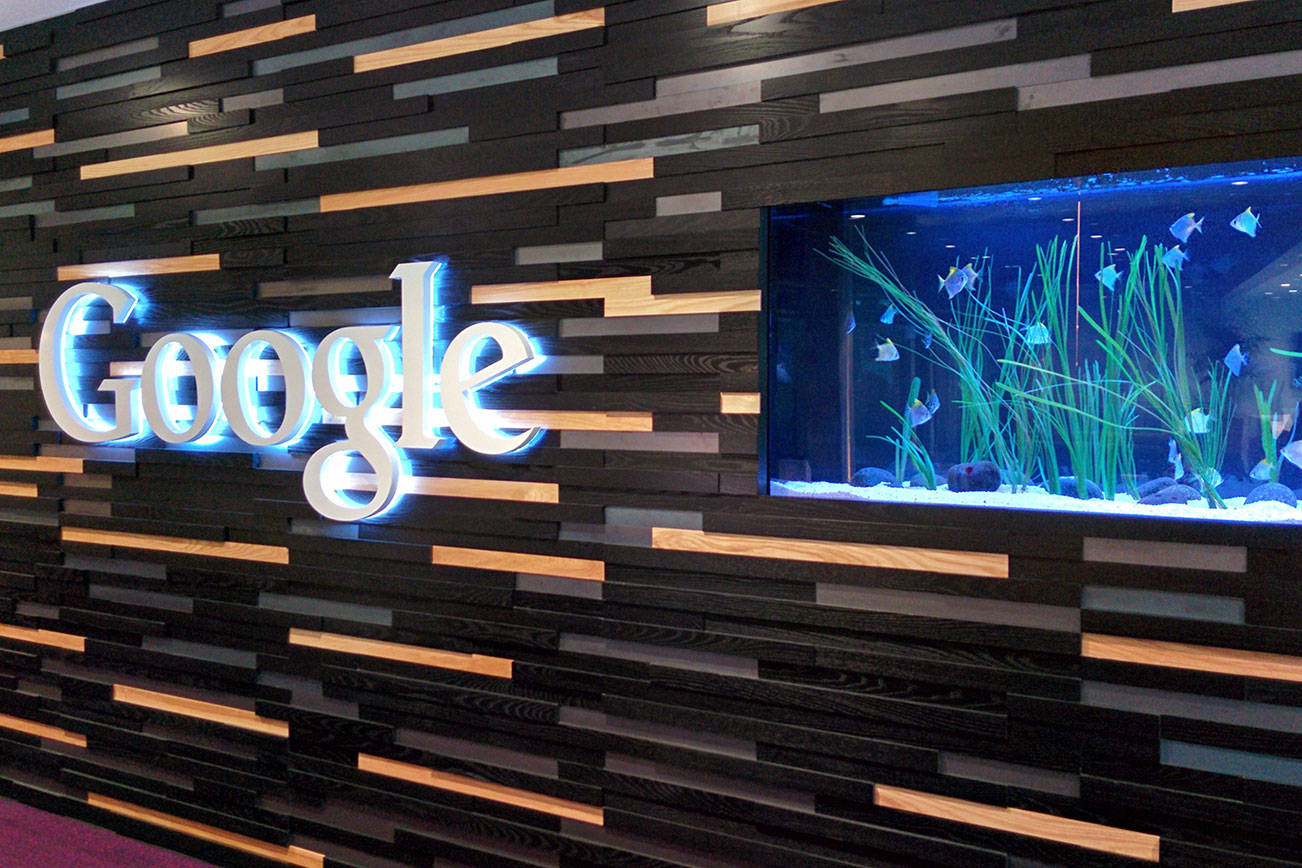Google Kirkland employees streamed out of their office the morning of Nov. 1 with signs reading “Believe Women” and “Times Up Google,” demanding more transparent, effective handling of sexual misconduct within the company.
Hundreds of local employees — both at the company’s Kirkland and Seattle locations — participated in the worldwide Google walkout to protest how the tech giant protected executives accused of sexual misconduct, including Android mobile software creator, Andy Rubin. The New York Times reported Sunday that three Google executives, including Rubin, were accused of sexual misconduct and protected by Google within the past decade.
Specifically, Rubin received a “hero’s farewell” and a $90 million exit package in 2014 while his sexual misconduct was left unmentioned, The New York Times reported. According to the article, Rubin was accused of coercing a female employee into performing oral sex in a hotel room during an extramarital affair with her in 2013.
Rubin denied the accusations on Sunday, claiming the allegations are “part of a smear campaign to disparage [him] during a divorce and custody battle.”
2/2 to disparage me during a divorce and custody battle. Also, I am deeply troubled that anonymous Google executives are commenting about my personnel file and misrepresenting the facts.
— Andy Rubin (@Arubin) October 26, 2018
Google found the allegations to be credible.
Amit Singhal, a senior vice president, received similar treatment after he was accused of groping a female employee at an off-site event in 2015, all detailed in The Times article. The third harasser named in the exposé, Rich DeVaul, an executive of Alphabet’s X division, was allowed to stay at Google’s parent company, but resigned Oct. 30 in light of the article.
According to multiple reports, this was only the latest of numerous mishandled sexual misconduct incidents in which Google dismissed victims in favor of the harassers who abused their power.
Thousands of Google employees participated in the protest in support of women’s rights and reform within the company. Organizers at the Kirkland walkout read aloud stories of harassment and discrimination.
The protesters made several demands including an end to forced arbitration in harassment and discrimination cases and the ability for employees to bring a colleague or supporter to human resources meetings; the end of pay and opportunity inequality, specifically to ensure there are women of color at every level and a transparent data report of the gender, race and ethnicity compensation gap; a public sexual harassment report detailing the number of claims, types of claims, how many accusers and accused employees have left the company and any exit package values; an improved sexual misconduct reporting system for all employees to feel safe and anonymous; and the company’s diversity chief to report directly to the CEO and have direct input to the board of the directors as well as an employee representative appointed to the board who will work with the diversity chief to allocate permanent resources and achieve these demands.
Google CEO Sundar Pichai responded to The Times article on Tuesday in an internal email obtained by Axios.
“I am deeply sorry for the past actions and the pain they have caused employees,” Pichai wrote. “If even one person experiences Google the way the New York Times article described, we are not the company we aspire to be.”
He added that Google has terminated 48 people, including 13 who were at senior manager and higher positions, for sexual harassment over the past two years.
“I understand the anger and disappointment that many of you feel. I feel it as well, and I am fully committed to making progress on an issue that has persisted for far too long in our society…and, yes, here at Google, too,” Pichai wrote. “Some of you have raised very constructive ideas for how we can improve our policies and our processes going forward. I am taking in all your feedback so we can turn these ideas into action. We will have more to share soon.”



